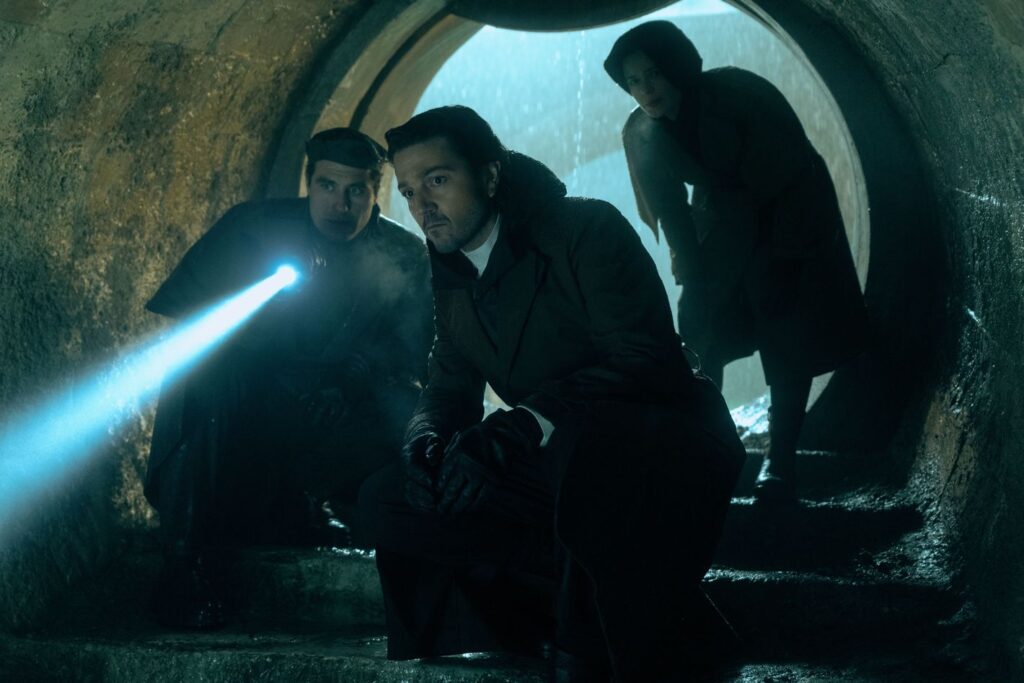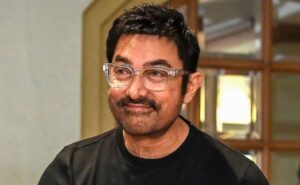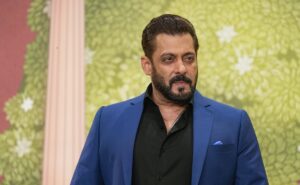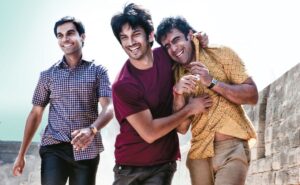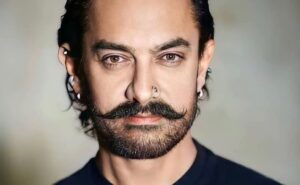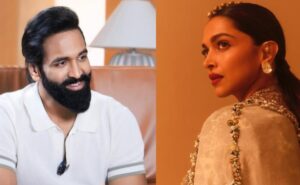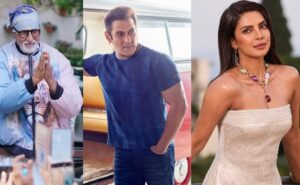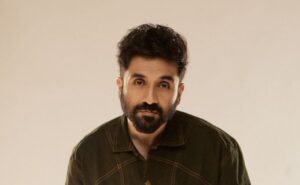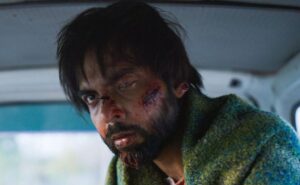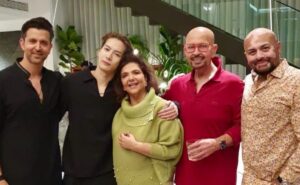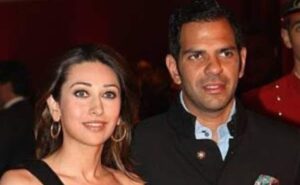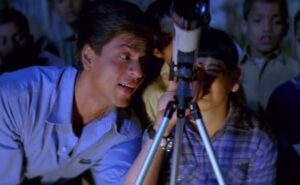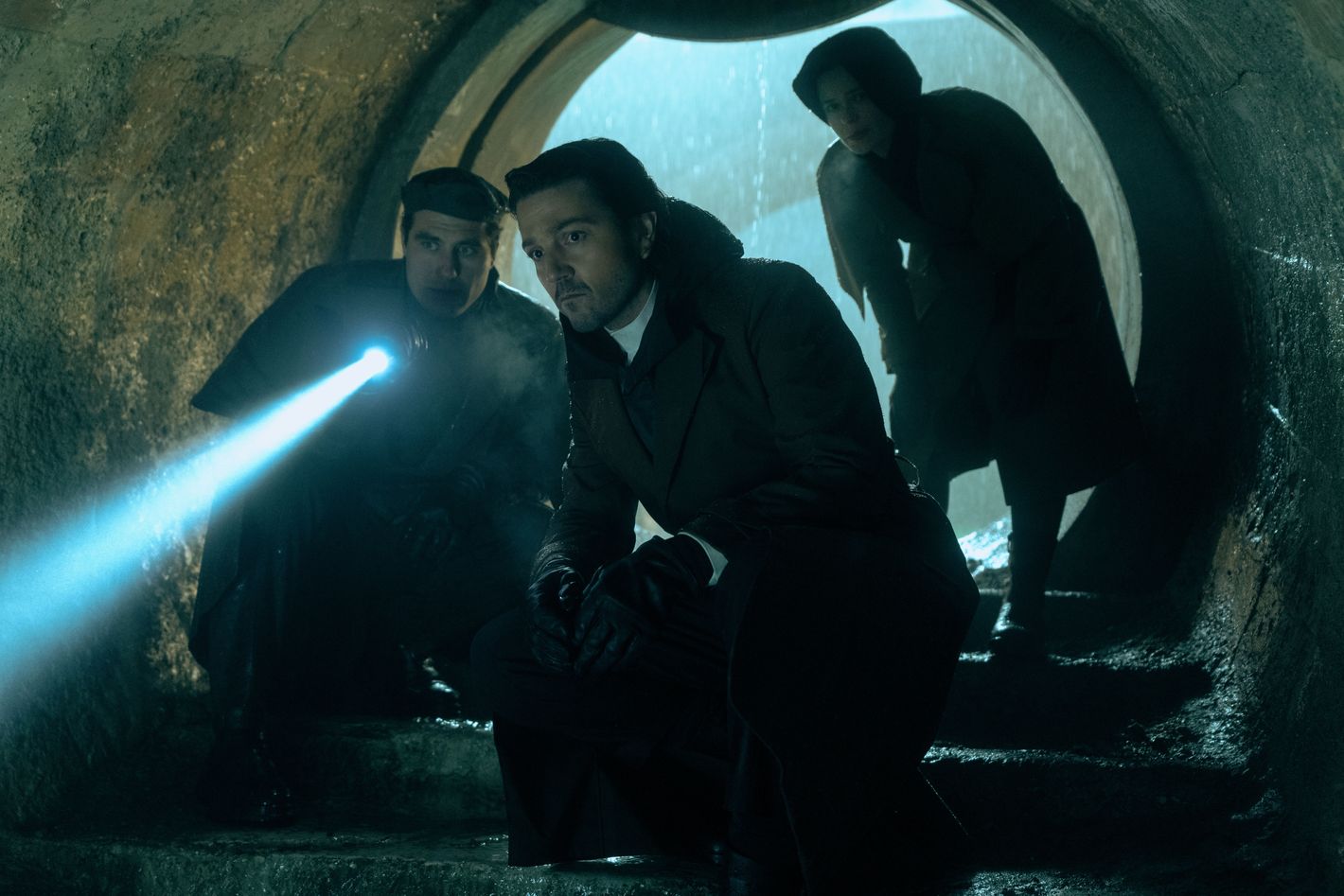
Andor holds a curious place among this year’s top dramas. The show received an Emmy nomination for Outstanding Drama Series in 2023 for its first season, along with seven other awards that included writing and directing. Yet neither star Diego Luna nor any of the show’s other cast members were recognized individually. This put Andor in rare company, historically. The most recent show to pull off drama series, writing, and directing nominations yet zero acting nods was Succession in 2019 (its first season) before it went on to rattle off Outstanding Drama wins — and a bunch of acting trophies — for its next three outings. Before Succession, the last time such a thing happened in drama was at the 1961 (!) Emmys for Sacco-Vanzetti Story, a two-part televised play directed by the great Sidney Lumet.
Luna, with whom Roxana Hadadi spent time at Vidiots in Los Angeles for her Vulture cover story, is hoping to be one of several Andor acting nominees this year, but the competition for Best Actor in a Drama is tight, with stars like Pedro Pascal, Adam Scott, and Noah Wyle trying to find a foothold in the category. With nomination voting running through June 23, I called Roxana to calibrate our collective confidence level in Andor’s chances.
Where do you feel Andor sits within the current echelon of Prestige TV?
I think it should be at the very top, because it has all the elements we expect from awards-caliber television. For one thing, it’s very expensive. We’ve been told the two seasons of this show cost $650 million —
That’s the Shōgun narrative, right? “Isn’t this show great? It’s so expensive!” Not to say that Shōgun wasn’t great, but that was a major selling point.
Absolutely. It was so expensive; it was so practically built. Look at all this work that went into it! Andor also has the auteur narrative with Tony Gilroy, the Oscar nominee we’ve been told saved Rogue One. Then we have this vast international cast full of very recognizable faces like Stellan Skarsgård and Forest Whitaker, and also a lot of people we don’t know who provide these beautiful performances that build upon the vastly imagined worlds within the show. Diego told me there are something like 150 speaking parts over two seasons, which is absolutely insane, and again very similar to Shōgun, which starred a similar mixture of established, respected character actors and up-and-coming newbies. Then there’s the ambition of packing four years of storytelling into one season of TV. Andor checks a lot of the boxes that we talk about for daring, cinematic, prestige television.
This is also the narrative for Severance: We built all this stuff; it’s Ben Stiller’s vision; it’s telling a really timely, urgent story about the individual in the world today. I think Severance has had better luck selling that narrative than Andor. And I’m personally frustrated by it, Joe!
I’m struck by the notion of Severance as a show whose message is largely internal. There is probably a lower barrier of entry to a series that suggests I really should be working on myself more.
That is part of it, because what Andor boils down to is the idea that you’re probably not doing enough. When I talked to Diego, that’s how he characterized the politics of the show. He was reluctant to discuss “Is Ghorman Gaza?” and whether the show is or isn’t about Donald Trump. But something he said, which I think is true, is that the show does emphasize the fact that you could be doing more. Whether that’s activism, volunteering, mutual aid — you could be doing more for your family, for your community, for people you consider your allies, for people you want to help in this world.
And that’s not a story that resonates in American culture as much as the individual-versus-the-world message of, say, The Last of Us.
No, Andor is very much a collaborative international story. When you mentioned the shows that were nominated against it at the Emmys two years ago, they all largely had that theme too, rather than what Andor is trying to do. I really think that is part of the reason for this lack of admiration for its performances. The uncharitable read of Diego’s Cassian Andor is that you’re watching him become a terrorist. Which I love! But I don’t think that it is perhaps as relatable as Pedro Pascal doing everything he can to save his daughter in The Last of Us. There are different values inherent in these characters, which then affects how people judge or value the performances.
I do think the most pertinent question when it comes to Andor at the Emmys is whether the show can pull acting nominations beyond Diego. Recently, when it comes to big, sprawling ensemble casts, the Emmys will either nominate all of them or none of them in a way that allows voters to not have to make decisions. The mass of acting nominations for The White Lotus, Succession, Ted Lasso, and The Handmaid’s Tale must involve quite a few voters just throwing half the casts of their favorite shows onto a single ballot.
I wrote a piece after Emmy nominations one year in which I was like, “There are too many people from the same show crowding into the same category.” And I think I proposed that you could only have one person per show per category. I stand by that.
You’re right, though. You look at something like Andor and it’s like, Oh, I could probably nominate 12 of the actors for it, when the reality is that at best they’ll get one or two. So what are the hard decisions? Do you push Stellan? Do you push Genevieve O’Reilly or Denise Gough? Do you push Kyle Soller? Adria Arjona? The guy who played our little revolutionary bellhop?
Any of them!
Are we setting ourselves up for disappointment?
We are setting ourselves up for disappointment, if only because it is ultimately a White Lotus year.
Even in a down year for The White Lotus, those cast members still pull a lot of weight.
They really do. In my dream scenario, it would be at least Diego, Stellan, Genevieve. And I think they might benefit, especially Diego and Genevieve, from a sense of, “We played these characters in this movie, and now we got the opportunity to build them out, redefine, and recontextualize these arcs. We got to play different things.”
But then there’s that great mass of Emmy voters. Who do they respond more to? Is it The White Lotus narrative of, “We spent nine months in Thailand and it was miserable, but look at the show we made!” You know, I can never tell. But I think Disney is pushing Diego and Stellan and Genevieve, and those picks feel right to me.
Joe, do you think Andor benefits from being at the end of the series? We’ve certainly seen Succession and Mad Men celebrated at the end.
Succession, Mad Men, The Sopranos, even Friday Night Lights. That was not always the Emmys trend. Sometimes, the Emmys would just be like, We’re going to move on to the next thing. Honoring outgoing shows has been more of a recent trend.
Here’s where I would be frustrated: If The Handmaid’s Tale ends up getting a ton of nominations for its final season. Because I think the read for that will be: Look at this show that debuted during a Trump presidency and is coming back during a Trump presidency! And look at what it says about our country. Whereas I fundamentally find Andor to be much more of a hopeful show in terms of what it depicts about what we’re able to accomplish in the face of authoritarianism.
I do wonder if Andor ends up getting nominated because the show takes on new meaning now that the Empire has actually deployed the Marines in downtown Ferrix.
Maybe all of a sudden people are queuing up that “Rix Road” remix as they light their Waymos on fire? That’s valid. You have written about this: These things feel so fluid in terms of how they change given what’s happening in the world. So on the one hand, obviously everything we are living in is very much a nightmare. On the other hand, the power of Andor is the fact that it takes such a long historical view of these cycles of oppression and offers a solution, which is collectivism. That might hit differently for voters right now than it did two years ago.
More Gold Rush
A short debate about Andor’s Emmy chances.

